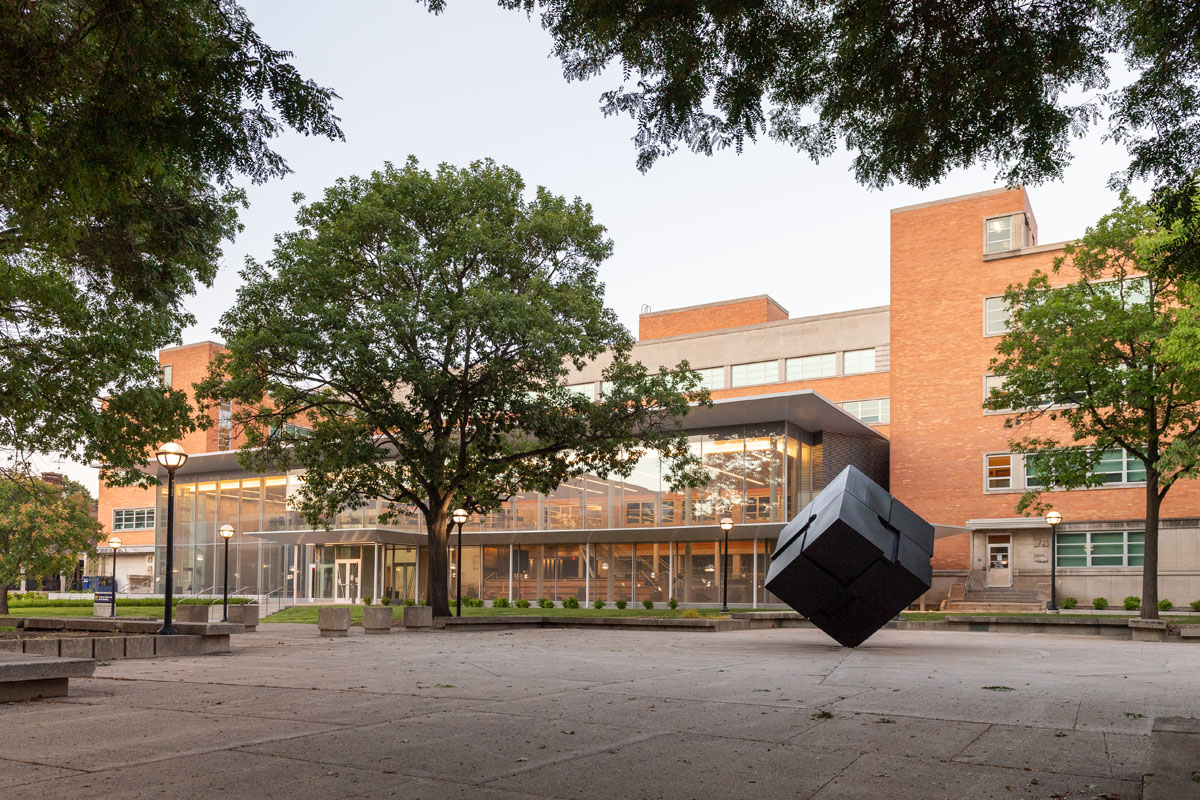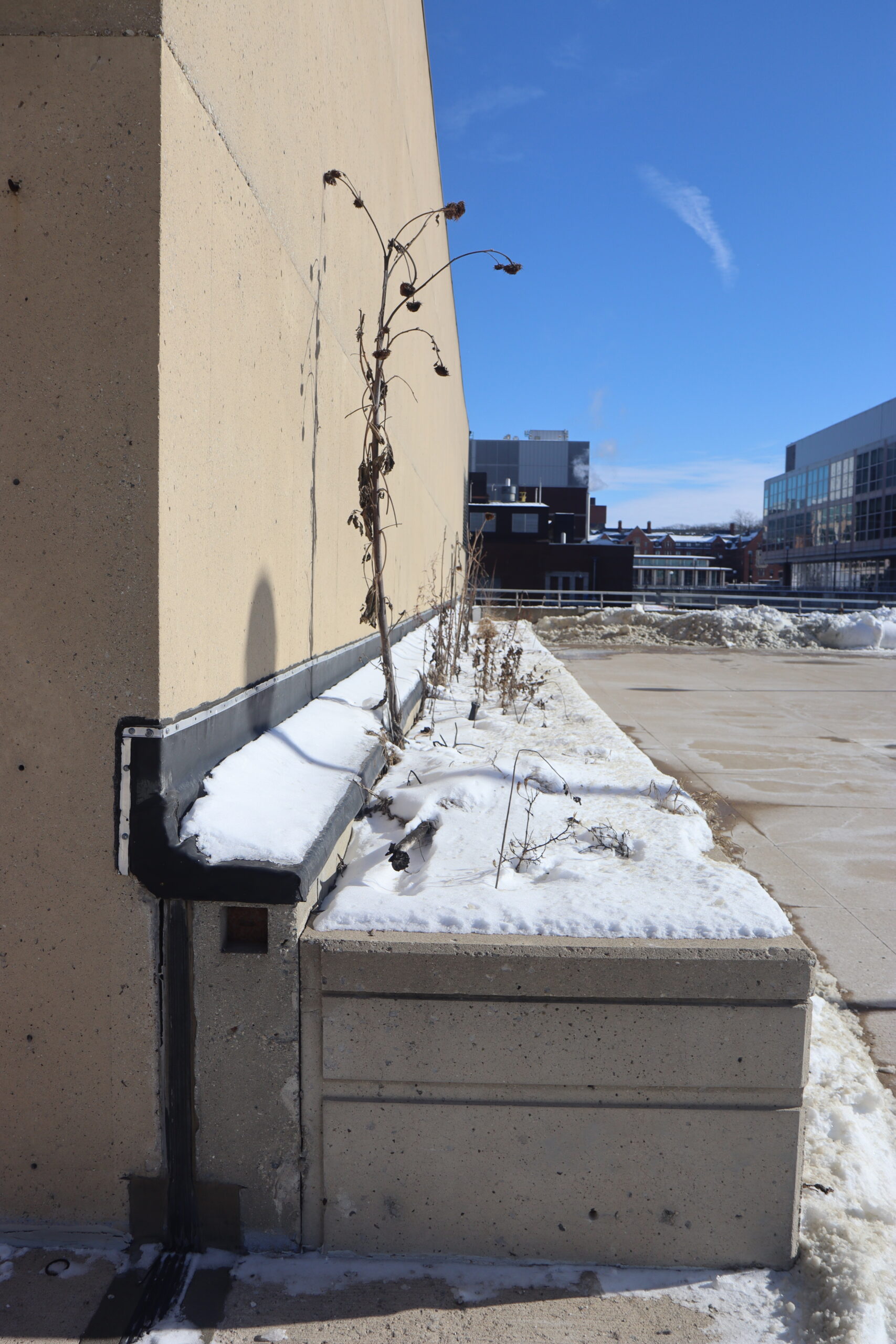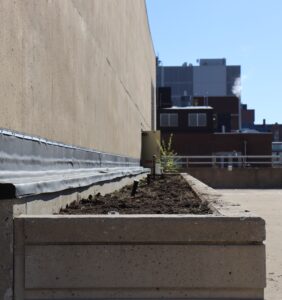
Incentives and Innovations Fund
As a part of the Year of Sustainability, LSA is interested in supporting ambitious ideas from students, staff, and/or faculty that will help LSA reduce its carbon emissions and prepare for a more sustainable future. As such, two funds have been established to empower community members to bring their ideas to fruition. Applications are open and will be reviewed on a rolling basis until the funds are exhausted. These funds are not intended to be used for staff salary, individual professional development, stipends, honorariums, or travel.
“We are a diverse intellectual community, working together to reimagine the world and create positive, purposeful change.”
Excerpt from the LSA Vision Statement
Incentives Fund ($500-25K). The goal of these funds is to incentivize LSA units to reduce their carbon, water, and/or material footprint with respect to their facilities and operations, teaching, and/or research. This fund is specific to departments and units within U-M LSA.
Innovations Fund ($500-25K). The goal of these funds is to empower individuals and/or small teams within LSA to pursue ambitious projects aimed at helping LSA meet its carbon neutrality goals and/or improving sustainability awareness and practices on campus. This fund is specific to U-M LSA departments, units, student groups, staff, and/or faculty (both tenure- and non-tenure-track).
Applications are accepted on a rolling basis (and will be reviewed monthly) throughout the year (late January 2024 – December 2024) until funds are exhausted. Funds will be made available for immediate use. Please note that we reserve the right to change which fund type you submit to, depending on the proposal.
All applications are submitted online and should follow the format shown in the Proposal Checklist section. To submit a proposal:
- To open the application:
- Open the LSA Academic Information System (if this link does not work, please reach out to the Year of Sustainability team)
- Once on this page, input your information: Department, Rank, Proposal Title, and Project Start and End Date. The Proposal Abstract or Overview will be similar or the same as your Project Description.
- Under the Proposal Category select Sustainability Incentive and Innovation Fund, then select either the Incentive or Innovation fund.
- On the next page, under the Specific Info box, input the amount of money you are requesting. If combined with other awards, you are also able to input the amount funded from other sources.
- Open and make a copy of the Project Overview and the Project Description, then fill out these forms with your project information. Upload these as PDFs under the Required Attachments box.
- If you have other attachments or files that support your funding request, you can upload them in the Other Relevant Attachments box.
- In the final box on this page, you are able to add collaborators and implications for different key groups that are on campus.
- Now you’re ready to submit your funding request!
- Project Overview (250 words max): Provide a brief overview of your idea, written for a non-specialist audience. This overview will be made public on our website if your proposal is funded.
- Project Description (1 page max, 11pt font, single-spaced):
- A description of the project and the intended goals and/or objectives.
- A rationale for the project, including how the project will lower the carbon/water/material footprint of your unit (for incentive funds) or help LSA meet its carbon neutrality goals and/or improve sustainability awareness and practices on campus (for innovation funds).
- A brief justification for each budget item as well as the total amount requested.
Both incentive and innovation fund applications will undergo a review process carried out by LSA faculty, staff, and students. Proposals are evaluated by the following criteria:
- Relevance of project to carbon neutrality/sustainability
- Impact on LSA’s carbon neutrality and/or sustainable practices
- Budget
The Year of Sustainability team asks that all grant recipients complete a brief web form within three months of the project’s completion. These reports will be publicly displayed on our website. In addition, we will have an end-of-year celebration for all of the recipients and others that were involved in the Year of Sustainability.
Please contact our team at sustainable-lsa@umich.edu if you have questions about the funds or the application process.
Awarded Proposals
- LSA Student Government Pollinator Patch
- Rooting for Change
- Eliminating Water Waste for Condenser Cooling
- LSA@Play Portable Water Station
- Clean Up Campus


Awardee: LSA Student Government
Project Overview: This pollinator garden will be thoughtfully crafted with native flora supporting biodiversity, increasing student engagement, and promoting overall sustainability at the University of Michigan. As student leaders in LSA, the LSA Student Government wants to be stewards of this space and has committed to investing in the patch as a part of their key committee responsibilities. They have an ongoing interest in campus green spaces and see this project as a key opportunity to move the conversation forward for LSA and have this as a physical legacy from the Year of Sustainability.










Photos by Micherlange Francois-Hemsley
Awardee: UM Sustainable Food Program (UMSFP)
Project Overview: Rooting for Change was a three-day summit hosted by the UM Sustainable Food Program (UMSFP) that focuses on uplifting student stories and ideas surrounding student food sovereignty through interdisciplinary modes of learning and communication. Rooting for Change is an end-of-year, culminating event that focuses on active student participation with food systems on campus. The goal of Rooting for Change is not just to put on events for students but for students to engage with each other in creative, interdisciplinary, and interactive ways through the act of leading other students to engage with the campus food system.
It is important to interact with food and sustainability on campus in a way that goes deeper than individual initiatives. Rather, we find that building community through food is a very meaningful way to share well-rounded information, skills, and stories; a campus united through food justice is one that is equipped with the resiliency and innovation required to integrate sustainability into every aspect of our University. Through this event, we focus on bringing the campus community together to uplift student voices on the intersectionality between sustainability, food, and social justice. We find that the best way to do that is to have students leading the talks, panel, and workshops. We believe that by placing students at the forefront of this event, the summit becomes a space that unites students and inspires them to take action on campus, and future endeavors, in sustainable food systems.


Awardee: Chemistry Department
Project Overview: The Chemistry Department seeks to reduce its water footprint by replacing single-pass water-cooled condenser systems with waterless air-cooled condensers for use in research and teaching labs. Condensers are used to capture solvent vapor when heating a reaction or drying a solvent. The condensers must be cooled to effectively do so, and conventional condensers are cooled by continuously flowing cool tap water through it, which goes down the drain after one cycle through the system. This process can use an estimated 150 or more liters of water per hour. The Chemistry Department seeks to purchase HeidolphTM Radelys Findenser Super Air Condensers, which passively radiates heat away from the system with zero water waste and no added energy requirements. The purchase and implementation of these “Findensers” throughout the department will eliminate hundreds of thousands of liters of wasted water per year.
Awardee: LSA@Play
Project Overview: The LSA@Play team at the University of Michigan aims to support sustainability goals by replacing plastic water bottles at events with a portable water refill station. This initiative aligns with the university’s objectives to reduce greenhouse gas emissions, waste sent to landfills, invest in a sustainability culture, and highlights the College of Literature, Science, and the Art’s commitment to sustainability over a vast area of topics. This transition is expected to reduce plastic waste by 4.07 to 24.4 pounds per event, based on an average attendance of 200 to 1,200 participants. This station eliminates the need for plastic bottles and encourages attendees to use their reusable bottles. By doing so, it not only reduces plastic waste but also promotes a culture of sustainability and supports education around resource conservation.

Awardee: Clean Up Campus
Project Overview: Clean Up Campus is an environmental student organization dedicated to preserving natural areas through clean-ups, volunteering, and educational outreach with local schools. We host weekly workdays held at various locations throughout Ann Arbor where we aim to restore and maintain public areas through trash pick-ups, waste prevention establishments, and collaborations with professional organizations.

